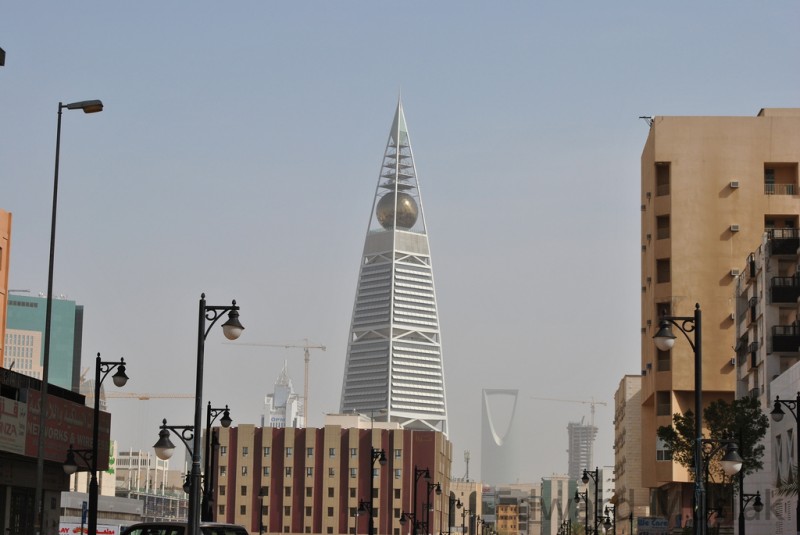 By Andrew Mills Deputy Bureau Chief, Gulf
By Andrew Mills Deputy Bureau Chief, Gulf
I’m writing Gulf Currents this week from an aircraft 20,000 feet above the Saudi desert, because, like most Reuters’ Gulf correspondents in recent weeks, I too am crisscrossing the Arabian Peninsula to break news on the region’s most important stories. This week’s main offering comes from Riyadh, where Saudi Arabia has just concluded its annual flagship investment event, the Future Investment Initiative (FII) conference. We touch on a massive push for investment and growth at the kingdom’s brand new, homegrown Humain AI company and expansion plans for the company behind Riyadh’s Diriyah. And we hear from Qatari mediators on Gaza. Our main analysis – and biggest scoop of the week – focuses on a decision by Saudi Arabia’s sovereign fund to recalibrate its strategy. For occasional updates from Reuters’s Gulf team between editions of the newsletter – plus snapshots from a reporter’s life in the Gulf – follow me on Instagram @and.mills.
News briefing: There’s a growing Saudi push to extract more value from the kingdom’s most successful gigaprojects. The CEO of Diriyah Gate, whose flagship tourism and real estate project is on time and on budget, told Reuters at FII that the company plans an IPO and to position itself to take on cultural restoration projects anywhere, including in Syria. Saudi Arabia’s AI company Humain is barely six months old, but it seemed everywhere in Riyadh this week, launching a new AI operating system, announcing tie-ups with Google and Amazon, investments by Saudi Aramco and plans for an IPO. “Our ambition is really, really massive,” said CEO Tareq Amin. Mediators scrambled into action this week to preserve the fragile ceasefire in Gaza, as Israel launched a barrage of strikes on Tuesday night that Palestinian officials said had killed 104. Israel eventually agreed to hold fire on Wednesday morning and mediators resumed their attempt to reach agreement on phase two of Trump’s plan for Gaza. Qatar’s prime minister later said Hamas had made clear its willingness to give up governance in Gaza, and Doha was still pushing the group to disarm.
Saudi’s Vision 2030 and a pragmatic pivot Reuters revealed a massive pivot by Saudi Arabia this week, where preparations are underway to shift its $925 billion sovereign wealth fund away from the real estate gigaprojects that have dominated its development agenda for a decade.
The goal: secure higher, more sustainable near-term returns. Saudi Arabia is trying to break its economic addiction to oil and, for a decade, has been pushing to develop a new economy that doesn’t depend on hydrocarbon money.
Billions have been spent trying to set things up over the last decade as part of the original strategy – known as Vision 2030 – which focused, in part, on the construction of expensive and outlandish real estate gigaprojects, where the returns on investment seem elusive.
Trojena, for example, is a winter sports destination in the kingdom’s northern mountains where ski slopes rely on fake snow made from desalinated water hauled across the desert. Several of these projects – including NEOM, a futuristic desert city with a projected population of 9 million – have faced repeated delays. “These changes show pragmatism and are not divorced from reality – the kingdom’s spending ability when oil was at $100 a barrel was completely different from now at roughly $60,” Reuters’ Yousef Saba, who helped break the story, told me from the corridors of Riyadh’s Ritz hotel, where the FII unfolded this week.
The PIF’s new – more pragmatic – strategy will focus on concrete areas like logistics, mineral exploitation and religious tourism, plus bets on investment in artificial intelligence and data centres.
“This pivot shows that Vision 2030 is fluid. It’s dynamic,” Saba said.
“The overall goal of diversifying the economy away from oil and building new industries and creating jobs – that stays. But how you get there is not so static.”
Chart of the week The recent U.S. sanctions on Russia’s top two oil companies create a diplomatic conundrum for Saudi Arabia. The de-facto leader of the Organization of the Petroleum Exporting Countries will need to balance its own strategic goals with its need to maintain the group’s alliance with Russia and other OPEC+ producers. Read more from our columnist Ron Bousso.
The Last Wave: Syrian president Ahmed Al-Sharaa spent his birthday on Wednesday with Saudi Crown Prince MbS, Don Trump Jr. and several thousand financial titans gathered at FII. He pitched his shattered country as a great investment.
Timour Azhari, Reuters incoming chief Saudi correspondent ran into Sharaa in the corridors of the Ritz, where he was swarmed by star-eyed selfie-takers and businessmen trying to cut deals.
Syrian president Ahmed Al-Sharaa spent his birthday on Wednesday with Saudi Crown Prince MbS, Don Trump Jr. and several thousand financial titans gathered at FII. “He’s become an iconic Arab leader,” Azhari said. “And maybe it’s because he’s one of the few leaders who’s conquered anything in the past decades.”
Sharaa finished off his birthday – in true Gulf fashion – with a stroll through a Riyadh shopping mall, where the swarming continued. Sharaa, a former al Qaeda leader, happily stopped and took selfies into the night.
Want to receive this newsletter every Thursday, or know someone who would? You can subscribe here.